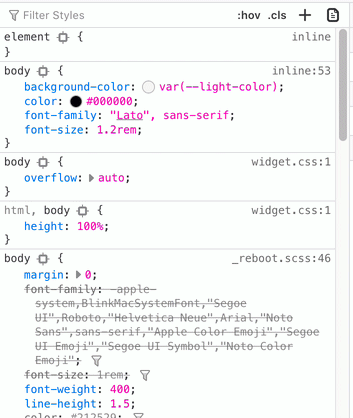Unpacking Kirk Lazarus: Robert Downey Jr.'s Risky Satirical Masterpiece
In the annals of cinematic comedy, few characters spark as much debate, admiration, and controversy as Kirk Lazarus. Portrayed with audacious brilliance by Robert Downey Jr. in Ben Stiller's 2008 action-comedy *Tropic Thunder*, Lazarus is not merely a character; he is a meticulously crafted satirical instrument, designed to skewer the very heart of Hollywood's self-indulgence, hypocrisy, and often, its glaring lack of self-awareness. His role, a white Australian method actor who undergoes a "pigmentation alteration" to play a Black character in a Vietnam War film, was undeniably risky, provocative, and became one of the most talked-about comedy performances in recent memory.
This article delves deep into the phenomenon of Kirk Lazarus, exploring the layers of satire that define him, the controversies he ignited, and the enduring legacy of Robert Downey Jr.'s bold portrayal. We'll examine how *Tropic Thunder* masterfully uses Lazarus to critique the film industry, and why, even years later, this character continues to be a touchstone for discussions on race, comedy, and the limits of artistic expression.
Table of Contents
- The Genesis of Kirk Lazarus: A Character Profile
- Tropic Thunder: A Brutal Satire of Hollywood
- The Controversial Core: Blackface and Its Context
- Kirk Lazarus and Alpa Chino: A Dynamic of Delusion and Reality
- Robert Downey Jr.'s Portrayal: A Masterclass in Risk-Taking
- The Enduring Legacy and Impact of Kirk Lazarus
- Beyond the Controversy: The Art of Satire in Tropic Thunder
- Why Kirk Lazarus Continues to Spark Discussion
The Genesis of Kirk Lazarus: A Character Profile
Kirk Lazarus is introduced to us as an Australian method actor, a man so deeply committed to his craft that he loses himself entirely in his roles. Before *Tropic Thunder*, he was already a celebrated figure, known for starring in the series *Satan's Alley* alongside Tobey Maguire, where he played Father O'Malley. His dedication even earned him the prestigious "Crying Monkey Award" at the Beijing Film Festival, a fictional accolade that perfectly encapsulates the film's absurd take on Hollywood's self-congratulatory nature.
Lazarus's defining characteristic, however, is his extreme approach to method acting. He famously proclaims, "I don't drop character 'til I've done the DVD commentary." This isn't just a throwaway line; it's a core tenet of his identity within the film, highlighting his profound, almost pathological, immersion in his roles. This commitment is pushed to its absolute limit for his role in the war film *Tropic Thunder*, where he takes on the character of Sergeant Osiris, a Black soldier.
To embody Osiris, Kirk Lazarus undergoes a "pigmentation alteration" surgery to permanently darken his face. This extreme measure is presented as the ultimate manifestation of his method acting, a commitment so profound that it blurs the lines between actor and character, and in the film's satirical lens, between dedication and outright delusion. It is this specific choice, the blackface, that makes Kirk Lazarus a lightning rod for discussion, forcing audiences to confront uncomfortable truths about Hollywood's past and present.
Tropic Thunder: A Brutal Satire of Hollywood
At its core, *Tropic Thunder* is a searing satire of the film industry itself. Directed by Ben Stiller, who also stars as Tugg Speedman, the film's plot revolves around a group of pampered, prima donna actors attempting to film a big-budget Vietnam War movie based on John "Four Leaf" Tayback's autobiography. However, the production quickly spirals out of control, behind schedule and over budget, leading the exasperated director, Damien Cockburn, to a desperate measure: dropping the actors into a real jungle, believing they are still filming, to capture raw, authentic performances.
- Indian Merchant Chambers
- Devon Larratt
- Gavin Casalegno Movies And Tv Shows
- Hiller Aviation Museum
- M S Circle
The film expertly skewers Hollywood's most glaring flaws: its inflated egos, rampant excess, and underlying racism and hypocrisy. Through characters like Tugg Speedman (the fading action star), Jeff Portnoy (the drug-addicted comedian), and of course, Kirk Lazarus, the movie dissects the absurdity of actors who believe their craft transcends reality, and a system that often enables their worst tendencies. The very premise of actors being forced to rely on their acting skills to survive in the middle of a real, dangerous jungle serves as a brilliant metaphor for the industry's often detached relationship with reality.
The Film-Within-A-Film: John 'Four Leaf' Tayback's Story
The narrative framework of *Tropic Thunder* is built around the autobiography of John "Four Leaf" Tayback, a decorated Vietnam veteran whose life story is being adapted for the screen. This meta-narrative allows the film to comment on the often-glamorized and sometimes disrespectful portrayal of real-life events and military service in Hollywood. The actors, particularly Kirk Lazarus, are so consumed by their "art" that they lose sight of the real sacrifices and experiences the original story represents. This internal conflict between authenticity and performance, between reality and Hollywood's version of it, is a key satirical target throughout the movie.
The Controversial Core: Blackface and Its Context
The most provocative and widely discussed aspect of Kirk Lazarus is his decision to darken his skin to play a Black man. This act of blackface, a practice with a deeply racist and offensive history in entertainment, immediately sparked controversy upon the film's release. Many questioned whether such a portrayal, even in a satirical context, could ever be justified.
However, Robert Downey Jr. and director Ben Stiller have consistently defended the movie's intent, arguing that the satire was aimed squarely at Hollywood's racism and hypocrisy, not at perpetuating it. Downey Jr. explicitly stated why he agreed to be in blackface as Kirk Lazarus: "I thought, 'If I do this, I'm going to have to go all the way.'" He praised Stiller's vision, emphasizing that the film skewers "the lunacy and the self-importance of actors and the lengths they'll go to be 'authentic.'" The joke, they maintained, was never on Black people, but on the white actor's absurd and offensive attempt to embody a race he doesn't belong to, driven by an egocentric desire for an Oscar.
The character's most famous line, "I know who I am! I'm a dude playing the dude, disguised as another dude!!" encapsulates this complex satirical layer. Kirk Lazarus believes he is transcending race through his acting, when in reality, he is embodying a historical caricature. The film uses Lazarus's delusion to highlight the historical insensitivity of Hollywood, where white actors often played roles that should have gone to Black performers, and where the industry often fetishizes "authenticity" without understanding its true meaning or consequences.
Kirk Lazarus and Alpa Chino: A Dynamic of Delusion and Reality
The satirical brilliance of Kirk Lazarus is amplified through his interactions with Alpa Chino, played by Brandon T. Jackson. Alpa Chino is a successful rapper who was born Black, and his presence serves as a constant, grounded counterpoint to Lazarus's theatrical delusions. Alpa Chino frequently "blasts Lazarus for his delusions," pointing out the absurdity and offensiveness of a white man in blackface attempting to lecture him on what it means to be Black.
This dynamic is crucial. Alpa Chino's exasperation highlights the real-world implications of Lazarus's actions, even within the film's comedic framework. While Lazarus is lost in his method acting, Alpa Chino represents a dose of reality, reminding him (and the audience) that there are genuine experiences that cannot simply be "acted" or appropriated. Furthermore, Alpa Chino's character, like many real-world rappers, promotes his own merchandise, notably "Booty Sweat," an energy drink that "keeps him going in the jungle." This detail adds another layer of satire, poking fun at celebrity endorsements and the commercialization of identity, even in the midst of a supposed life-or-death situation.
The clash between Kirk Lazarus's performative "Blackness" and Alpa Chino's lived experience provides some of the film's most insightful and uncomfortable humor, forcing viewers to confront the very issues the film is satirizing.
Robert Downey Jr.'s Portrayal: A Masterclass in Risk-Taking
Robert Downey Jr.'s decision to take on the role of Kirk Lazarus was a monumental risk. At a time when his career was experiencing a significant resurgence, a misstep could have been catastrophic. Yet, his portrayal was not only critically acclaimed but also earned him an Academy Award nomination for Best Supporting Actor. This speaks volumes about his skill and the nuanced way he approached such sensitive material.
Downey Jr. didn't play Kirk Lazarus as a simple caricature. Instead, he imbued the character with a bizarre blend of intense dedication, profound delusion, and an almost childlike earnestness in his pursuit of "authenticity." He played the character of Kirk Lazarus, not a Black man, which was crucial to the satire. His performance was lauded for its ability to walk a razor-thin line, making the audience laugh at Lazarus's absurdity while simultaneously making them uncomfortable with the implications of his actions.
His commitment to the role, even extending to spending the entire DVD commentary in character, further cemented the legend of Kirk Lazarus and Downey Jr.'s dedication to the satirical premise. It's a testament to his talent that he could navigate such a controversial role with such precision, transforming what could have been a career-ending choice into one of his most memorable and acclaimed performances.
The Enduring Legacy and Impact of Kirk Lazarus
Even more than a decade after its release, Robert Downey Jr.'s Kirk Lazarus remains one of the most controversial comedy roles in recent years. This enduring discussion is a testament to the film's effectiveness as satire and the character's profound impact. *Tropic Thunder* skewers Hollywood's racism, egos, and excess with a brutal and hilarious edge, and Lazarus is the sharpest point of that blade.
The character forces audiences to grapple with uncomfortable questions about appropriation, method acting, and the entertainment industry's responsibility. It's a role that continues to be dissected in film studies, cultural commentary, and casual conversation, proving its lasting relevance. The film's ability to provoke thought while delivering genuine laughs is a rare feat, and Kirk Lazarus is central to that achievement.
Memorable Quotes and Their Significance
The film is replete with iconic lines, many of them delivered by Kirk Lazarus, that contribute to its enduring appeal. Quotes like "I'm a dude playing the dude, disguised as another dude!!" or his dramatic declaration, "A Speedman is racing towards the chopper, getting shot repeatedly… Survive!" not only highlight his character's eccentricities but also serve as mini-commentaries on the film's themes. These best quotes from *Tropic Thunder* make you realize how funny the movie truly is, even if you haven't seen it in a while, and they continue to be shared and debated, demonstrating the character's firm place in pop culture.
Beyond the Controversy: The Art of Satire in Tropic Thunder
*Tropic Thunder* is not just a comedy; it's a masterclass in satire. It uses extreme characters like Kirk Lazarus not to endorse their actions, but to expose the absurdities and hypocrisies they represent. The film walks a very fine line, daring to tackle sensitive subjects like blackface and mental health (through Jack Black's character, Jeff Portnoy) by framing them within a larger critique of Hollywood's self-serving nature.
The genius lies in its unflinching commitment to the bit. The film never winks at the audience or apologizes for its characters' outlandish behavior. Instead, it fully commits to the premise, allowing the humor and the critique to emerge from the characters' interactions and their increasingly dire circumstances. This bold approach, spearheaded by Ben Stiller's direction, is what elevates *Tropic Thunder* beyond a mere slapstick comedy into a significant piece of social commentary.
The Cast and Crew Behind the Genius
The success of *Tropic Thunder* is not solely due to Kirk Lazarus, but to the collective brilliance of its cast and crew. Starring Ben Stiller, Robert Downey Jr., and Jack Black, the film brought together comedic powerhouses. Ben Stiller's vision as director was crucial in crafting a film that was both uproariously funny and sharply critical. His ability to balance the outrageous humor with pointed social commentary is what makes the film, and the character of Kirk Lazarus, so effective and memorable.
Why Kirk Lazarus Continues to Spark Discussion
The enduring fascination with Kirk Lazarus stems from the character's inherent complexity and the film's willingness to push boundaries. In an increasingly sensitive cultural landscape, *Tropic Thunder* and Kirk Lazarus serve as a case study in the power and peril of satire. The discussion around the character forces audiences to consider the intent behind art, the historical context of problematic tropes, and the responsibility of creators and performers.
Kirk Lazarus is a character designed to make us uncomfortable, to make us laugh at the absurd, and ultimately, to make us think critically about the entertainment industry and its impact on our perceptions of race and identity. His legacy is not just about the laughs he provided, but the conversations he continues to ignite, cementing his place as one of the most iconic and debated figures in modern comedy.
IMDB and Fan Discussions: A Testament to Enduring Interest
The ongoing interest in Kirk Lazarus is evident in the countless discussions, analyses, and fan pages dedicated to him. Platforms like IMDB feature extensive trivia, photos, and quotes related to the character, showcasing the depth of engagement from audiences worldwide. Fans often rank the greatest quotes from *Tropic Thunder*, with Kirk Lazarus's lines consistently topping the lists, a clear indicator of his lasting impact and the film's enduring humor. This continuous online discourse proves that the character, and the film's message, resonate deeply with viewers, long after its initial release.
Conclusion
Kirk Lazarus, as portrayed by Robert Downey Jr., is far more than just a comedic character; he is a bold, controversial, and ultimately brilliant satirical creation. He embodies the excesses and hypocrisies of Hollywood, forcing audiences to confront uncomfortable truths about race, method acting, and the entertainment industry's often misguided pursuit of "authenticity." Downey Jr.'s fearless performance, combined with Ben Stiller's sharp directorial vision, transformed a potentially disastrous concept into one of the most memorable and critically discussed comedic roles of the 21st century.
The debates surrounding Kirk Lazarus highlight the enduring power of satire to provoke thought and challenge societal norms. Whether you find him offensive, hilarious, or a complex mix of both, there's no denying his impact. He remains a testament to the idea that comedy, when executed with intelligence and purpose, can be a potent tool for social commentary. What are your thoughts on Kirk Lazarus and the film's controversial approach? Share your perspective in the comments below, or share this article to continue the discussion!

Seeing Calculated Values of CSS Variables in Browsers | Aaron Saray

Seeing Calculated Values of CSS Variables in Browsers | Aaron Saray

Steps to Register for the IELTS at British Council | Nurseonlineph